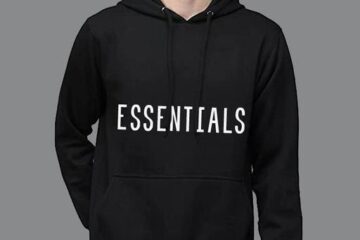What kind of makeup suits my face?

What kind of makeup suits my face?
The type of makeup that suits your face depends on various factors, including your facial features, skin tone, personal style, and the occasion. Here are some general guidelines to help you determine what kind of makeup may complement your face:
Identify Your Face Shape
Determine your face shape (oval, round, square, heart, or diamond). Different face shapes may benefit from specific makeup techniques to enhance or balance features.
Consider Your Skin Tone:
Identify your skin undertone (warm, cool, or neutral) to guide your choices in foundation, concealer, and lipstick colors.
Highlight Your Best Features
Accentuate your favorite facial features. If you love your eyes, focus on eye makeup. If you adore your lips, experiment with lip colors.
Choose Colors that Complement Your Eyes
Select eyeshadow colors that enhance the natural color of your eyes. For example, purples and plums can complement green eyes, while warm tones like gold and copper enhance blue eyes.
Adapt to the Occasion
Consider the occasion when choosing makeup. Natural and subtle looks may be suitable for daytime or professional settings, while bold and vibrant colors can work for evening events or special occasions.
Experiment with Trends
Don’t be afraid to try new trends and techniques. Experimenting with different looks can help you discover what you enjoy and what suits you best.
Skin Texture and Type
Choose makeup products that suit your skin type (dry, oily, combination) and texture. For example, matte finishes are often preferred for oily skin, while dewy finishes work well for dry skin.
Consider Your Personal Style
Your tastes and sense of style are very important. If you prefer a minimalistic look, you might focus on natural and neutral tones. If you love bold and dramatic looks, you may experiment with vibrant colors and intricate techniques.
Take Lighting into Account
The lighting in which you’ll be seen can affect how makeup appears. Consider both natural and artificial lighting when applying makeup, especially for events or photography.
Remember, Makeup Artist Course In Una is a form of self-expression, and there are no strict rules. Feel free to experiment, have fun, and embrace the looks that make you feel confident and beautiful.
Which certificate is best for makeup artist?
There isn’t a single “best” certificate for makeup artists, as the ideal certification can depend on various factors, including your career goals, location, and the specific area of makeup artistry you want to specialize in. However, there are several reputable certifications and courses that can enhance your skills and credibility as a makeup artist. Here are some well-known certificates and programs:
**Makeup Artistry Certification from Professional Schools
Many professional makeup schools offer comprehensive certification programs. Examples include:
Makeup Designory (MUD): MUD offers makeup artistry programs covering various aspects of the industry.
Cinema Makeup School: Known for its special effects makeup courses.
** Online Certification Programs
Various online platforms provide makeup artistry courses with certifications. Examples include:
QC Makeup Academy: Offers online makeup courses with a certification upon completion.
Makeup Artist Boot Camp: Provides an online certification program for aspiring makeup artists.
** MAC Pro Membership:
While not a traditional certification, becoming a member of MAC Pro provides access to professional products and resources. It’s a recognition of your status as a professional makeup artist.
** National Certification Boards
Some countries or regions have national boards that offer certifications for makeup artists. Check with local beauty or cosmetology boards for information on certification options.
** Estée Lauder Companies’ Certificate Programs
Some prestigious beauty brands, like Estée Lauder, offer certificate programs for makeup artists. These programs may focus on their specific product lines.
** CIDESCO Certification
CIDESCO (Comité International d’Esthétique et de Cosmétologie) is a globally recognized beauty therapy association. They offer certification in beauty therapy, which may include makeup artistry.
** ITEC Certification
ITEC (International Therapy Examination Council) provides certifications in beauty and spa therapy, which may include makeup artistry as part of the curriculum.
When choosing a certification program, consider the following factors:
Curriculum: Look for programs that cover a broad range of makeup techniques, including areas you may want to specialize in (e.g., bridal, fashion, theatrical).
Reputation: Choose a program with a good reputation in the industry. Check reviews, alumni testimonials, and the success stories of graduates.
Practical Experience: Programs that include hands-on practical experience or opportunities for internships can be beneficial for skill development.
Industry Recognition: Some certifications may be more widely recognized in certain regions or industries. Consider what is valued in your target market.
Cost and Duration: Evaluate the cost and duration of the program to ensure it aligns with your budget and schedule.
Before enrolling in any program, research thoroughly, and consider reaching out to professionals in the Makeup Course In Una industry for advice. Additionally, attending makeup trade shows, networking events, and building a strong portfolio can also contribute to your success as a makeup artist.
Read more article:- Buzz
Leave a reply
You must be logged in to post a comment.











